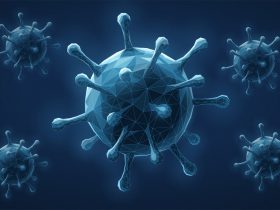What are possible preventive actions?
A strong and flexible analytical system both for detection of acute virus infections (by so called PCR testing for viral nucleic acid) and for detection of acquired immunity (by antibody testing) is essential for monitoring the status quo in populations (such as a whole city population) or in subpopulations (such as retirement homes). Another preventive action is fast analysis of infection clusters followed by appropriate quarantine measures. One more example of preventive action would be an (almost) immediate social distancing response – so far it seems that quickly reacting countries were more successful to keep the number of victims relatively low as compared to countries waiting longer for lockdown activities.
Up-sides of the pandemic?
The pandemic – with all its danger and threats – has also opened some new and promising doors with the potential to make the healthcare system much “leaner”. A simple, but illustrative example is that before the crisis the typical procedure for an Austrian patient who needs a repeated prescription was this sequence of steps:
- way to the doctor
- get the prescription
- way to the drug store with the prescription in hands
- handout of the drug.
In the COVID-19 crisis, the “process” was shortened:
- patient calls doctor for prescription
- doctor is passing electronic order/ information to the drug store
- patient visits the drug store and hand-out.
The patient saves a whole movement in the process (i.e. way to the doctor), which – by the way – generates also a climate-friendly side effect.
What’s Next?
Society in general and healthcare decision makers in particular are prompted to draw the right conclusions from COVID-19 and to implement necessary actions with highest effort. This collective effort is the least that can be done in tribute to the many victims of the pandemic.
Read the first part here: Protective power and protective failure of healthcare systems (Part 1)






Leave a Reply